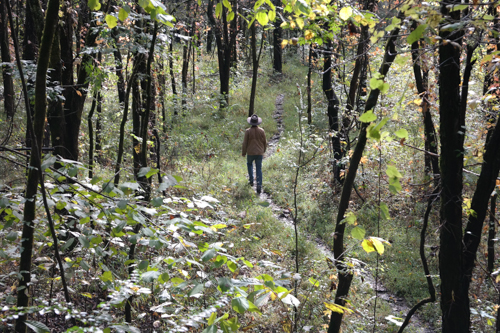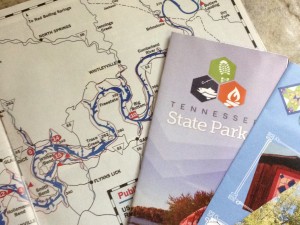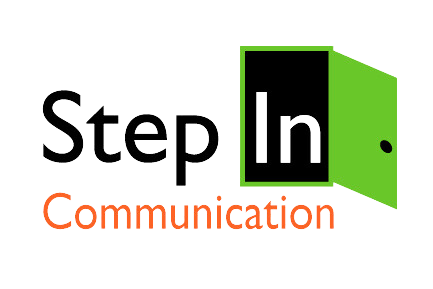 I pride myself on being a pretty good planner, especially when it comes to trips. I also think I’m pretty good at online research, but a recent getaway with my family in Tennessee showed me (and now my clients!) just how important the little details are to travelers who are putting their faith into what is online about your destination. Here’s what I found.
I pride myself on being a pretty good planner, especially when it comes to trips. I also think I’m pretty good at online research, but a recent getaway with my family in Tennessee showed me (and now my clients!) just how important the little details are to travelers who are putting their faith into what is online about your destination. Here’s what I found.
We were planning a four day weekend in Tennessee in early October. This was the second year in a row we had planned to explore the area’s beautiful parks and lakes. We were hoping to do some hiking, kayaking and maybe rent a fishing boat for one day.
Things I booked very early– airfare, the cabin at the state park, rental car. Nothing unusual there. After that was finalized about 8 weeks out, I turned my attention to the activities.
Here was my search process to find rental canoes or kayaks.
- Go back to the state park website. It mentions a marina but no further information except it is run separately. NO hyperlink.
- I do a web search for “canoeing near ABC state park” and “rent canoes near ABC state park” and “rent canoes in Tennessee” and get results on the third try, but none were anywhere near where we were staying.
- By now I am toggling between an online map of the area, my results, and several other websites, but nothing is taking me to where I want to go.
- I reach a dead end.
Next I try to find out about renting a fishing boat for a day during our stay. Here’s what I did:
- I go to the state park website and look for the information about the marina. One or two sentences about where it’s located within the state park, but no detailed information.
- I do a web search for “marina located at ABC state park” and an entire website for this marina and its rentals is there.
- The website says they don’t rent fishing boats. But if I want a houseboat to rent, they got ’em!
- I reach a dead end.
I decide, due to other pressing deadlines, that we would wing it, that I would make phone calls when we got to Tennessee because we were going to spend a day in Nashville first and deal with it later.
Once we are in Nashville, I am planning to purchase food for the weekend. since we are in a rental unit, I am stocking in groceries, but it’s my vacation, so I don’t want to cook the whole time. So I Google “restaurant at ABC state park” and an entirely different website comes up. With a catering form, messages about booking early on the weekends, etc. I think “perfect” we will have dinner here one night during our stay.
We head out the next day. As we are driving in – you already know how this ends — we drive right past a ginormous canoe-shaped sign in front of a ginormous business advertising canoe rentals and guided trips. And, look! – there’s a vinyl banner hanging off the welcome sign of the park saying “ABC restaurant is closed for the season. See you next year.”
I could not believe it! The Internet failed me.
Thank goodness for the free magazine published by the local tourist association which I found in the rack at the local gas station on my way to the ladies room. It had better maps of the waterways than I had seen anywhere and put items of interest into categories which finally gave context to the possibilities around us.
 Don’t get me wrong. Our October getaway was wonderful. There was fishing, hiking, beautiful leaves and a surprise trip to a beautiful Appalachian Craft Center run by Tennessee Tech University. It could have been even better, if all the little pieces of information were stitched together.
Don’t get me wrong. Our October getaway was wonderful. There was fishing, hiking, beautiful leaves and a surprise trip to a beautiful Appalachian Craft Center run by Tennessee Tech University. It could have been even better, if all the little pieces of information were stitched together.
Here’s what could have improved our experience:
- Liberal hyperlinks to nearby businesses on the state parks website instead of vague references in copy.
- An active website which is updated to immediately mark changes in hours/season. A big “Closed for the Season” banner along the front of the restaurant website should have been added on the last day of operation.
- Destination context. Have you ever noticed how the little town that is listed as the address of a state park is never anywhere on any map or navigation? How about telling me what county you’re in or that everyone refers to this area as the Upper this or the Lower that.
- Better SEO keywords/ tags/categories to give context to the person searching on the Internet. If the canoe outfitter had done that, I would have found it and rented a canoe, too!
It doesn’t really matter the size or seasonality of your destination, stitching together information will help future travelers find you and spend more money while they are visiting, too.
